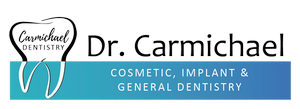Top Dental Myths and Misconceptions

Thanks to the internet, many people have access to a wealth of knowledge regarding tips for proper oral care. However, a lot of the information can be false or misleading. But don’t fret; we’ve got you covered! Our team decided to put together a list of top dental myths and misconceptions so that you can be sure you are taking the right actions regarding your dental health.
Myth #1: Bleeding Gums are Normal
Bleeding gums while flossing or brushing your teeth on a frequent basis isn’t normal. In fact, it can be a sign of gum disease. Gum disease (also known as periodontitis) is a gum infection that can lead to inflammation, swelling, and bleeding. If left untreated, gum disease can cause tooth loss and damage the jawbone. There are various reasons why gums may bleed, including:
- Poor oral hygiene – Not brushing and flossing on a regular basis can lead to plaque buildup, which can cause gum disease.
- Hormonal changes – Hormonal changes, such as pregnancy, can cause gums to become more sensitive and susceptible to bleeding.
- Certain medications – Some medications, such as blood thinners, can cause gums to bleed more easily.
- Bruxism – Grinding or clenching your teeth can cause gum tissue to become irritated and bleed.
- Toothbrushing technique – Brushing your teeth too hard or with a toothbrush that has hard bristles can cause gum tissue to become irritated and bleed.
If you are experiencing bleeding gums, it is essential to see your dentist for an evaluation. They can determine the cause of the bleeding and recommend appropriate treatment to improve your gum health. Good oral hygiene, regular dental check-ups, and prompt treatment of gum disease can help prevent gum bleeding and maintain good oral health.
Myth #2: Brushing your Teeth Harder Cleans Better
Brushing your teeth too hard is not a good idea. When you brush too hard or use a toothbrush with hard bristles, you can cause gum recession, which can lead to sensitivity and an increased risk of gum disease. Additionally, brushing too hard can wear down the enamel on your teeth, increasing the risk of tooth decay and sensitivity. To maintain good oral hygiene and avoid damaging your gums and teeth, it is important to brush your teeth gently using a soft-bristled toothbrush. If you have any concerns about your brushing technique or if you are experiencing gum sensitivity, it is a good idea to speak with your dentist. They can provide guidance and recommendations to help you maintain good oral health and prevent damage to your gums and teeth.
Myth #3: Flossing Isn’t Really Necessary
Many people think that flossing is an extra add-on to your oral hygiene routine. However, it actually plays a vital role in your overall oral health. Flossing helps to remove plaque and food particles that can get trapped between teeth and in hard-to-reach areas of the mouth that a toothbrush can’t usually reach. It also helps to reduce the risk of gum disease, cavities, and bad breath. To ensure a healthy and beautiful smile, flossing should be part of your daily oral hygiene routine!
There is a lot of false dental information out there. That’s why it’s important to talk with your dentist regarding proper dental care. We hope this list of top dental myths and misconceptions helped! Ensuring you have a beautiful and healthy smile is our mission. If you need a dental check-up or have any questions, feel free to reach out to the friendly dental team at Carmichael Dentistry. Give us a call at (858) 484-2560, or click here to schedule an appointment.




